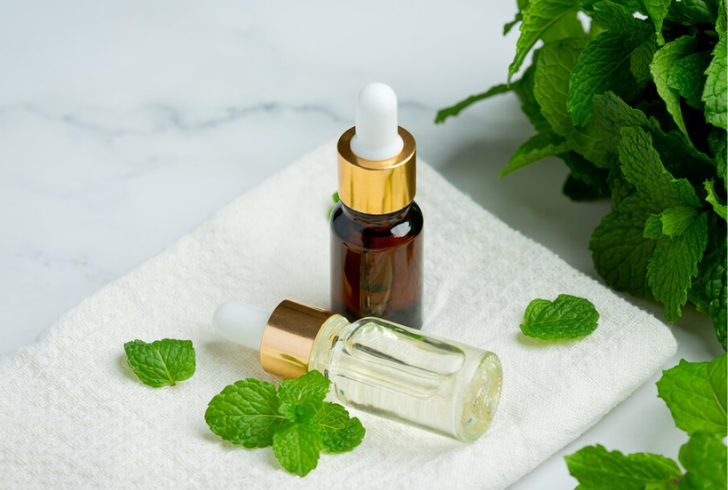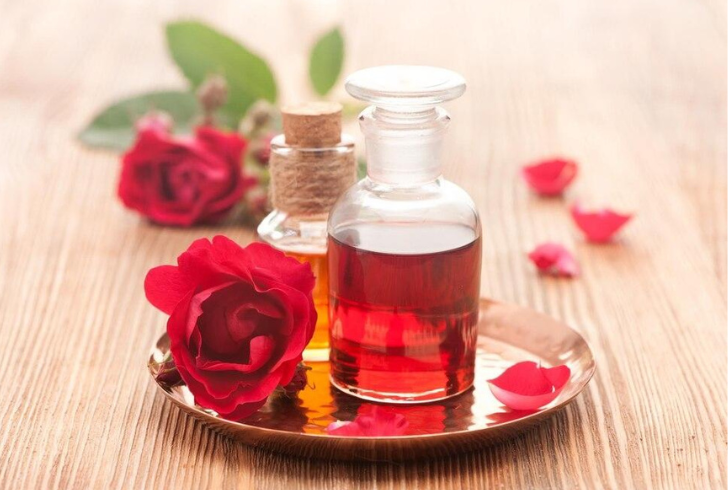Heart health is a crucial aspect of overall well-being, and with cardiovascular diseases being a leading cause of mortality, exploring every possible avenue for maintaining a healthy heart is essential. While lifestyle choices like a balanced diet and regular exercise are fundamental, many are turning to complementary therapies like essential oils for heart health. But do these oils really offer benefits for your heart?
Exploring the Benefits of Essential Oils for Heart Health
Various essential oils have been studied for their potential benefits on heart health. Although the evidence is still emerging, some oils have shown promise in supporting cardiovascular well-being through their anti-inflammatory, antioxidant, and stress-reducing properties.
1. Basil

Basil, particularly the “holy basil” variety, has been associated with lowering LDL cholesterol levels. Often referred to as “bad” cholesterol, LDL can contribute to plaque buildup in arteries, leading to conditions like atherosclerosis. Basil’s potential in reducing these cholesterol levels may play a role in heart health support.
2. Bergamot
Bergamot essential oil is gaining attention for its possible effects on cardiorenal metabolic syndrome—a condition where cardiovascular, renal, and metabolic diseases coexist. Some studies have highlighted bergamot’s cholesterol-lowering properties and its impact on reducing cardiovascular risk factors.
3. Cassia
Cassia, a type of cinnamon, may offer heart health benefits through its anti-inflammatory properties. Inflammation is a known risk factor for heart disease, and cassia’s ability to reduce inflammation could contribute to overall cardiovascular health.
4. Clary Sage
Clary sage essential oil is believed to help manage hormone-related stress, particularly in women. Since hormonal imbalances can affect heart health, clary sage may indirectly support cardiovascular wellness by promoting hormonal balance.
5. Ginger
Ginger essential oil has been studied for its anti-inflammatory properties and its ability to support circulation. High blood lipids, a major contributor to atherosclerosis, may be managed with ginger, which has shown potential in lowering lipid levels and protecting heart health.
6. Lavender
Lavender oil is widely known for its calming effects. Some research indicates that lavender can help manage stress and anxiety, which may indirectly benefit heart health. Additionally, lavender has shown promise in regulating blood sugar levels and protecting against oxidative stress, both of which are important for cardiovascular health.
7. Marjoram
Inhaling marjoram essential oil may help lower blood pressure by relaxing blood vessels. This natural remedy stimulates the parasympathetic nervous system, enhancing blood flow and potentially supporting heart health.
8. Saffron
Saffron essential oil is being investigated for its antioxidative properties. Preliminary research suggests that saffron may help reduce cholesterol levels and prevent blood vessel blockages, potentially benefiting heart health.
9. Rose

Rose essential oil has calming effects that can reduce stress and anxiety—two factors that play a significant role in heart health. By helping to manage stress, rose oil may support heart rate management and reduce arterial inflammation.
10. Ylang-Ylang
Ylang-ylang essential oil is often used for relaxation, which can help manage stress levels. Stress reduction is key to maintaining a healthy heart, and ylang-ylang has been shown to have sedative effects that can lower blood pressure and heart rate.
Potential Risks of Using Essential Oils
While essential oils offer potential benefits, it’s crucial to be aware of the risks associated with their use. Some potential risks include:
- Allergic Reactions – Essential oils can cause allergic reactions in some individuals.
- Ingestion – Consuming essential oils can be harmful and should be avoided unless under professional guidance.
- Medication Interactions – Essential oils may interact with certain medications.
- Respiratory Issues – Inhaling essential oils may cause respiratory problems in sensitive individuals.
- Skin Irritation – Direct application of essential oils can lead to skin irritation.
Essential oils for heart health may offer complementary benefits when used alongside conventional treatments and lifestyle changes. However, they should not replace medical interventions or professional advice.
Always prioritize a balanced diet, regular exercise, and stress management for optimal heart health. If considering essential oils, consult with a healthcare provider to ensure they fit safely into your wellness plan.




